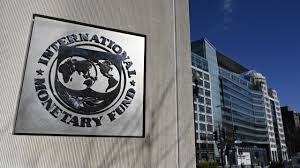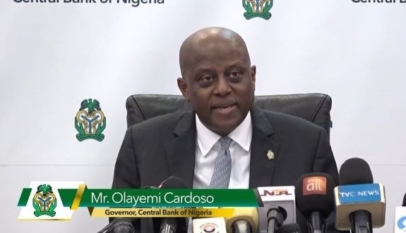
IMF Backs CBN’s Monetary Tightening Policy
The International Monetary Fund on Tuesday backed the recent monetary tightening policy of the Central Bank of Nigeria (CBN), urging further tightening by Central Banks to check the global rising inflationary pressures.
The Fund made the recommendation in its Global Financial Stability Report which was released on Tuesday at the sidelines of the IMF/World Bank Spring meetings holding in Washington DC.
It said the global financial system is being tested by higher inflation and rising interest rates at a time when inflation in many jurisdictions remains uncomfortably above central banks’ targets.
The interest rate increased further from 16.5 percent in December 2022 to 17.5 percent in January 2023 until last month when it was raised to 18 percent.
The CBN Governor, Mr Godwin Emefiele had, during the last Monetary Policy Committee meeting held in March said that the inflationary pressure had become an issue of concern for the apex bank.
He said, “What one would expect is because we are tightening, inflation should immediately begin to drop. It doesn’t happen that way.
Speaking on the global inflationary pressures while presenting the Global Financial Stability Report, the IMF Director, Monetary and Capital Markets Department, Tobias Adrian, said that the emergence of stress in financial markets is complicating the task of central banks.
He said, “The availability of tools aimed at addressing financial stability risks should help central banks separate monetary policy objectives from financial stability goals, allowing them to continue to tighten policy to address inflationary pressures.
“If financial strains intensify significantly and threaten the health of the financial system amid high inflation, trade-offs between inflation and financial stability objectives may emerge.
“Clear communication about central banks’ objectives and policy functions will be crucial to avoid unnecessary uncertainty. Policymakers should act swiftly to prevent any systemic event that may adversely affect market confidence in the resilience of the global financial system.
“Should policymakers need to adjust the stance of monetary policy to support financial stability, they should clearly communicate their continued resolve to bring inflation back to target as soon as possible once financial stress lessens.”
On the recent turmoil in the banking sector, the IMF said this has highlighted failures in internal risk management practices with respect to interest rate and liquidity risks at banks, as well as supervisory lapses.
It said, “Supervisors should ensure that banks have corporate governance and risk management commensurate with their risk profile, including in the areas of risk monitoring by bank boards and the capacity and adequacy of capital and liquidity stress tests.
“For Non-Bank Financial Institutions, policymakers should close data gaps, incentivize proper risk management practices, set appropriate regulation, and intensify supervision.
“Adequate minimum capital and liquidity requirements including for smaller institutions that, individually, are not considered systemic, are essential to contain financial stability risks.
“Prudential rules should ensure that banks hold capital for interest rate risk and guard against hidden losses that could materialize abruptly in the event of liquidity shocks.
“In the current environment of persistent inflation and high interest rates, authorities should pay specific attention to bank asset classification and provisions as well as to exposures to interest rate and liquidity risks.
“Central banks’ liquidity support measures should aim to address liquidity, not solvency issues.”
On some of the recent responses by policymakers, the IMF stated that further work is needed on the resolution reform agenda to increase the likelihood that systemic banks can be resolved without putting public funds at risk.
“While it is a positive development that shareholders and holders of other capital instruments incurred losses, allocating more losses across the creditor hierarchy before public funds are put at risk is proving harder to deliver.
“The international community will need to take stock of these experiences and draw policy conclusions on the effectiveness of resolution reforms after the global financial crisis,” the IMF said.
To prevent imminent financial crises, the IMF suggested that capital outflow measures may be an option to lessen outflow pressures.
However, it noted that the measures should be part of a comprehensive policy package that tackles underlying macroeconomic imbalances and should be lifted once crisis conditions abate.




